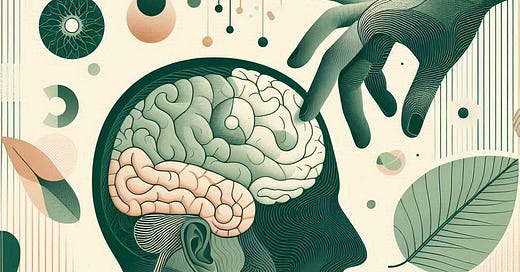Body Detachment In Depersonalization/Derealization
Confrontation With Others' Emotions Changes Bodily Resonance Differently In Those With Low And High Levels Of Depersonalization.
Helge Gillmeister, Ieva Šmate, Dimitra Savva, Haojie Li, Christina Parapadakis and Julia Adler
July 2024
Summary:
This study looked at how the brains of people with different levels of depersonalization-derealization (DDD) symptoms react to emotions and sensations. DDD can make people feel disconnected from their own bodies and feelings. Using brain scans, researchers found that people with more DP-DR symptoms might show weaker brain responses when seeing emotional faces. This difference in brain activity could be linked to feeling detached from their bodies. The study also looked at "mirror touch" – how our brains react when we see someone else being touched. The results might suggest that seeing an angry face may trigger this "mirror touch" response in people with more DDD symptoms, but not in those with fewer symptoms. This difference could be related to confusion between oneself and others. The researchers think that disconnecting from their bodies might be a way for people with DDD to cope with upsetting emotions, and this might be made worse by struggling to tell the difference between themselves and other people.
This research suggests that feeling disconnected from your body, a key part of DDD, may be related to how people process emotions and sensations, potentially as a way to cope with difficult feelings.



